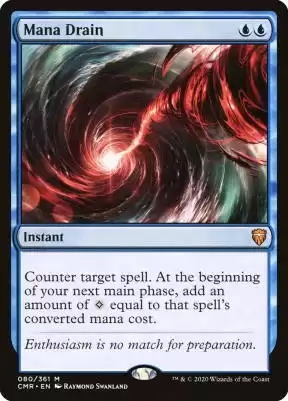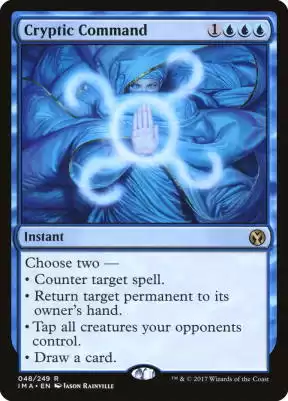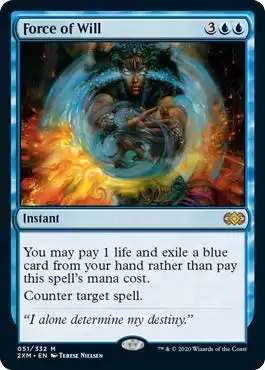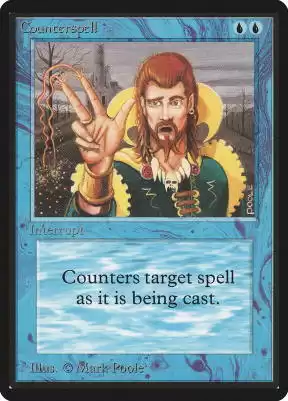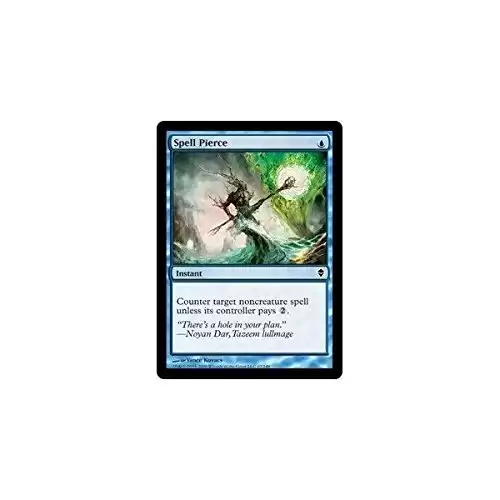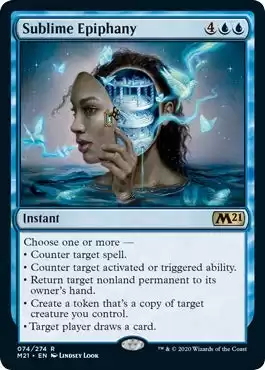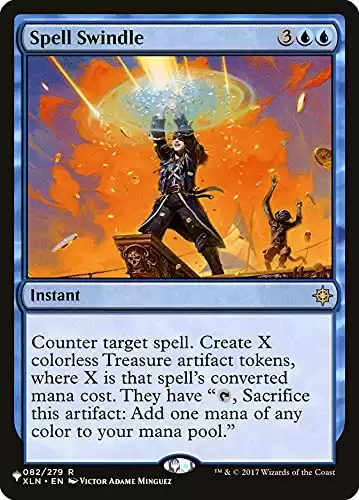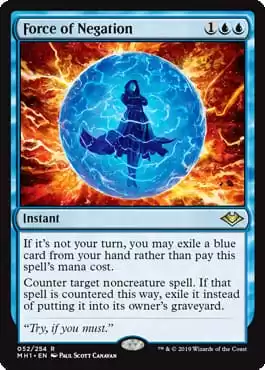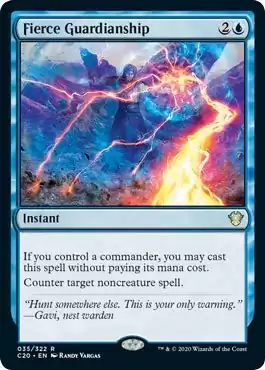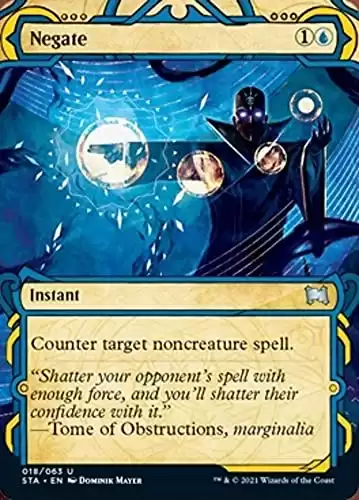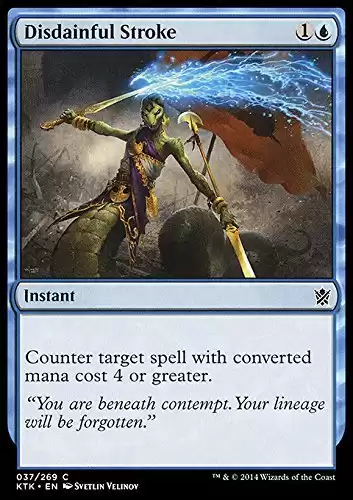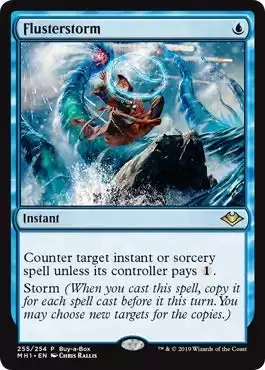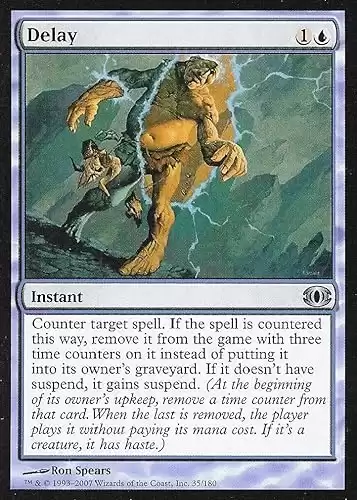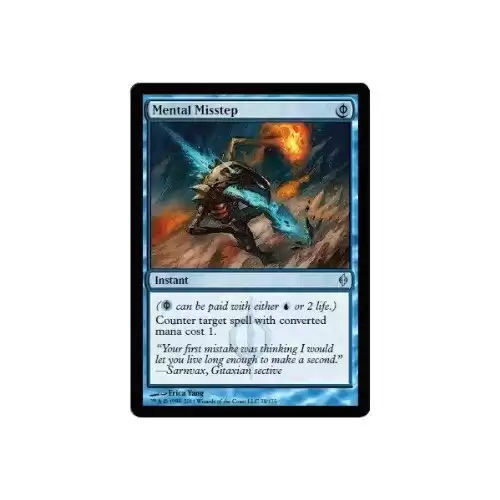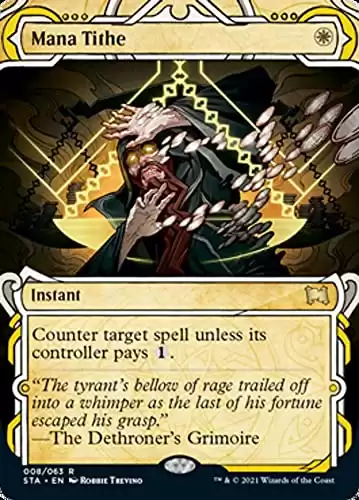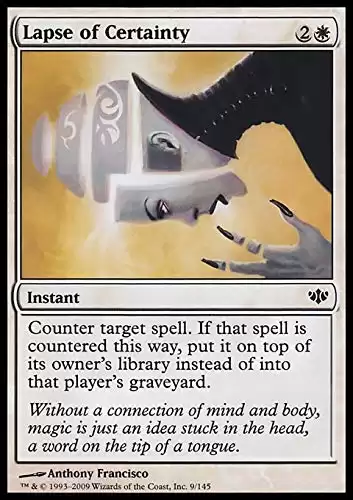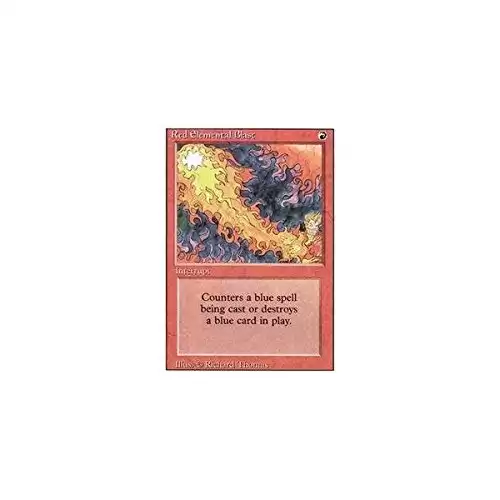Have you ever been playing a game of Magic when your opponent suddently casts a spell that throws a wrench in your whole plan? A timely removal spell, a huge threat, or a game-ending combo piece? Well thankfully, there’s a group of cards in MTG that can stop your opponent right in their tracks: counterspells.
Counterspells let you stop spells or abilities from resolving. Much like how Murder lets you answer your opponents’ creatures, Counterspell and other cards like it let you answer their spells. What makes counterspells so strong is that they stop your opponent from even resolving their cards. Permanents don’t get their enter the battlefield triggers, and instants and sorceries have no effect at all.
Still, there’s a lot more to understand about how counterspells work. Counterspells also appear in just about every set, so you have plenty of options to choose between. Luckily for you, we’re going to go through common questions about counters, as well as the best of the best in a variety of categories.
What Is a Counterspell?
Any card that ‘counters’ a target spell or ability can be considered a counterspell (don’t confuse this kind of ‘counter’ with +1/+1 counters, or any of the other counters permanents can have!). Like many things in MTG, this group was named after the first card of it’s kind: Counterspell.
There’s also two kinds of counterspells: ‘hard’ counters and ‘soft’ counters.
A hard counter is anything that unconditionally stops your opponents’ spells. The original Counterspell is a great example, but so are cards like Negate or Arcane Denial.
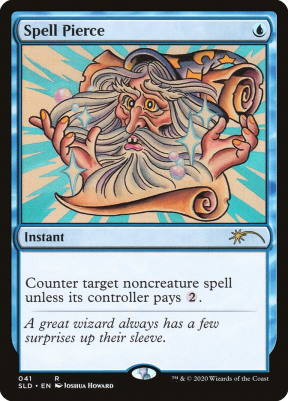
Soft counters, on the other hand, don’t guarentee that you’ll remove your target. Some soft counters, like Mana Leak, depend on whether or not your opponent pays mana. Others, like Remand, don’t get rid of the spell forever. Hard counters are generally better than soft counters, but there are specific design choices that can make soft counters strong.
How Do Counterspells Work in MTG?
Counterspells are typically pretty simple. First, you need to select a target. This will either be a spell or ability on the stack, so it has to be something that hasn’t resolved yet. As an example, let’s say your opponent casts Elder Gargaroth. Before it resolves, it goes onto the stack and is considered to be a ‘spell,’ so you could target it with Essence Scatter.
RELATED: What Is The Stack In MTG And How Does It Work?
Once you’ve chosen your target, let’s assume your opponent doesn’t have any instants to play in response. When your counterspell resolves, you completely negate your opponent’s spell.
To counter a spell or ability means to cancel it, removing it from the stack. It doesn’t resolve and none of its effects occur. A countered spell is put into its owner’s graveyard (Rule 701.5a).
MTG Wiki
You send your opponent’s spell right to the graveyard, and it has no effect. Plain and simple!
Some counterspells, like Force Spike, require your opponent to make a decision: pay mana, or have their spell countered. When one of these counterspells resolve, your opponent chooses whether they want to pay or not. If they pay, their spell will resolve as normal. If they decide not to pay, or can’t pay, then you counter their spell as normal.
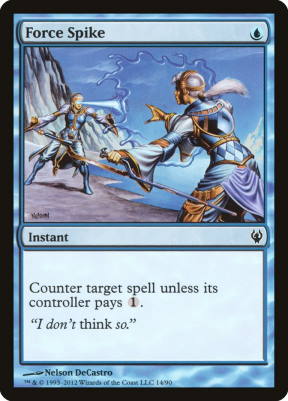
Can You Counter a Counterspell?
Yes! Counterspells are still considered to be spells on the stack, just like any other card that you cast. This means that you can counter counterspells, and even engage in ‘counter wars’ where you and your opponents go back and forth countering each other.
Best MTG Counterspells
Now that you know a bit more about how counterspells work, let’s take a look at which ones you should look to include in your decks. There are plenty to choose from, so I’m not going to repeat cards between these lists. Free counterspells are great in cEDH, for example, but I want you to see some of the other strong options in that format. Hopefully, you find at least a couple counterspells no matter what you’re looking for!
Overall Best MTG Counterspells
To start, let’s look at the best of the best. These counterspells, in no particular order, are the most powerful in the game. You can’t really go wrong playing with any of these, but they all work differently.
- Cheap
- Counters all spells
- Gives you extra mana
- Costs double blue
Mana Drain is a strictly better version of the OG Counterspell. Even if you counter a spell with a mana value of zero, it’s the same as the original. In most cases, though, you’ll gain extra mana on your next main phase, and that’s never a bad thing to have.
One of the advantages of counterspells, and removal in general, is gaining mana advantage. If you only spend two mana to stop an opponent’s five-mana spell, you’ve made them spend more resources than you for no effect. Mana Drain capitalizes on this concept even more, making it a dangerous counterspell in pretty much every situation.
- Flexible
- Counters all spells
- Expensive
- Costs three blue
It might surprise you that a four-mana counter is so strong. After all, I just told you that mana advantage is a big reason why counterspells are good, so shouldn’t cheaper counters be better?
Typically yes, but Cryptic Command is so versatile that it bucks that trend. Every mode on this card is useful and gives you an edge over your opponent. You don’t even have to counter anything! Such a flexible card is almost never dead, and it can swing the game in your favor if you play it right.
- Free
- Counters all spells
- Costs an extra card
Of course, you still don’t want to pay a lot for your counterspells, so it’s hard to get better than paying nothing! Force of Will is the best free counterspell, no questions asked. It can answer anything your opponent throws at you, and its alternate cost is negligible if you can leverage the mana advantage a free counter gives you.
Low Mana Value MTG Counterspells
As long as we’re talking about mana advantage, let’s look at more cheap options that you should consider running.
- Cheap
- Counters all spells
- Costs two blue
There might be newer, fancier cards out there, but you can’t go wrong with the original. Counterspell is a cheap, universal answer. Its only downside is that it costs two blue mana, so you’ll need to make sure you have enough blue sources to cast it reliably. As long as you aren’t just splashing blue, though, you should be able to make this staple work.
- Cheap
- Only counters noncreature spells
- Not a hard counter
Spell Pierce is another cheap option (both in mana value and price) that sees play. Sure, it can’t counter creatures, and sure, it’s a conditional counter. These are certainly drawbacks, but it’s hard to deny the utility of this card. Spending just one mana to stop your opponent’s key spell is game-changing, especially in tight, interactive formats where every mana counts. cEDH players, I’m looking at you.
High Mana Value MTG Counterspells
Of course, not every counterspell has to be as cheap as possible. While these cards might not see much competitive play, they have splashy effects that can absolutely turn the tide of a game.
These counterspells are best in decks that can do lots of things at instant speed. Holding up five or six mana for a counter only to have no great targets feels awful. If you can spend that mana in other ways, though, the risk of these cards goes way down.
- Counters all spells
- Flexible
- Expensive
Sublime Epiphany isn’t just a counterspell. It’s a bounce spell, a clone effect, a cantrip… it’s essentially a broader Cryptic Command. Still, six mana is a hefty price, so you can get punished if you don’t get any good targets. If you can get four or even all five modes, though, this card can propel you into the lead.
- Counters all spells
- Can make lots of treasures
- Expensive
- Depends on what your opponents play
Spell Swindle is also a situational counter. The bigger the spell you counter, the better, just like with Mana Drain. There are two big differences here, though.
First, Spell Swindle costs way more. Only getting two or three mana back from your five-mana counterspell just isn’t good enough, whereas it’s fine with Mana Drain.
Second, the treasures stick around, so you can at least stockpile them for later. I’d only recommend this if your meta sees expensive spells semi-regularly, as you want to get as many treasures as you can.
Free MTG Counterspells
If a counterspell has an option to cast it for free, you really can’t go wrong including it in your deck. However, even among the free spells, some rise above the rest.
- Free
- Exiles the countered spell
- Only counters noncreature spells
- Costs an extra card
Force of Negation is a lot like Force of Will, but it’s a bit more restrictive. You can only cast it for free on your opponent’s turn, and you can only counter noncreature spells. Still, it has its upsides, such as a lower normal cost and exiling the countered spell. It’s not perfect, but it’s still an amazing option for most decks.
- Free
- Easy requirement
- Only counters noncreature spells
In Commander, Fierce Guardianship might just be the best counterspell. It doesn’t hit everything, but having your commander out is such an easy requirement compared to exiling a card. As long as your opponents aren’t removing your commander on sight, you should be able to get this off for free.
Budget MTG Counterspells
A lot of the cards I’ve mentioned so far are pretty pricy, but there are plenty of solid, affordable options for control players on a budget. Remember: counterspells appear in every set, so there are plenty of commons and uncommons that are both available and playable.
Negate is a card that sees a nearly annual reprint, and for good reason. Stopping a noncreature spell for just two mana is a great deal, even if it may sound restrictive. This still covers plenty of threats like Birthing Pod or Narset, Parter of Veils. If you’re really worried about creatures, run Essence Scatter, too!
- Cheap
- Limited targets
I’ve said it again and again in this article: whenever you can gain a mana advantage with counters, you’re in a great position. Disdainful Stroke might require you to do that, but it’s something you wanted to do anyway. Sure, not being able to stop a cheap removal spell or tutor will feel bad, but shutting down a huge Villainous Wealth or Craterhoof Behemoth will feel amazing.
cEDH Counterspells
We’ve already covered a number of counterspells that see play in cEDH, but there are some more interesting options you may not see in many other formats.
- Cheap
- Works well with other cheap spells
- Only counters instants and sorceries
- Not a hard counter
Flusterstorm really benefits from the heavy interaction of cEDH. Cheap instants and counter wars are a huge part of the format, and Flusterstorm can quickly go from Force Spike to a hard counter if you play the turn right. You really only need to make one or two copies to deny your opponents from comboing off, as well as some solid timing.
Delay is a really unique counterspell. Instead of sending your opponent’s spell to their graveyard, you just, well, delay it for three turns. They’ll get it back eventually, but it’s unlikely that a game of cEDH will last long enough for this to happen. Instead, three turns should be all the time you need to assemble your own win condition.
RELATED: MTG Suspend: How It Works and What It Does
- Cheap or free
- Narrow targets
In a format where every mana you spend needs to count, and where so many cheap spells see play, Mental Misstep is ideal. Spending life instead of mana is a huge upside, and there are plenty of great targets for this spell. I’ve already mentioned one-mana counterspells that see play, and there are even more I haven’t covered. You can also stop cheap tutors, like Vampiric Tutor or Imperial Seal, that see frequent play.
RELATED: The Best MTG Black Tutors
Non-Blue MTG Counterspells
You may have noticed that every counterspell I’ve shown you so far is blue. That’s the primary color for counterspells, and they rarely appear in any other color. However, that makes non-blue counterspells even more surprising, and you can easily catch your opponents off guard with these.
- Cheap
- Counters all spells
- Not a hard counter
Mana Tithe requires the right timing, but most players will try to spend all of their mana if they can. When they can’t pay up, you can hit them with the tithe and stop them right in their tracks.
- Counters all spells
- Puts the countered spell on their deck, not graveyard
Lapse of Certainty doesn’t get rid of your problems forever, but it buys you time. You can gain lots of tempo by putting a spell on top of its owner’s library, especially if they poured a ton of mana into it. Maybe one more turn is all you need to knock them out, or maybe you can interact with their deck somehow. Either way, Lapse of Certainty gives you a chance.
- Cheap
- Flexible
- Only works against blue cards
Red Elemental Blast, and it’s identical twin Pyroblast, is strong but narrow. It’s outside of your control if your opponent plays blue, so it would typically be a sideboard card. In Commander, however, it’s fairly likely that someone at the table will be playing blue. Even if they aren’t, you’d also have to draw this in your deck of 99 cards for it to really be dead weight. When it works, though, it’s incredibly efficient.
End Step
Counterspells are a core part of MTG. They’ve been around since Alpha, and more of them get printed with every set. I hope this article has taught you a bit more about leveraging your counters, or at least shown you a new card worth trying.

